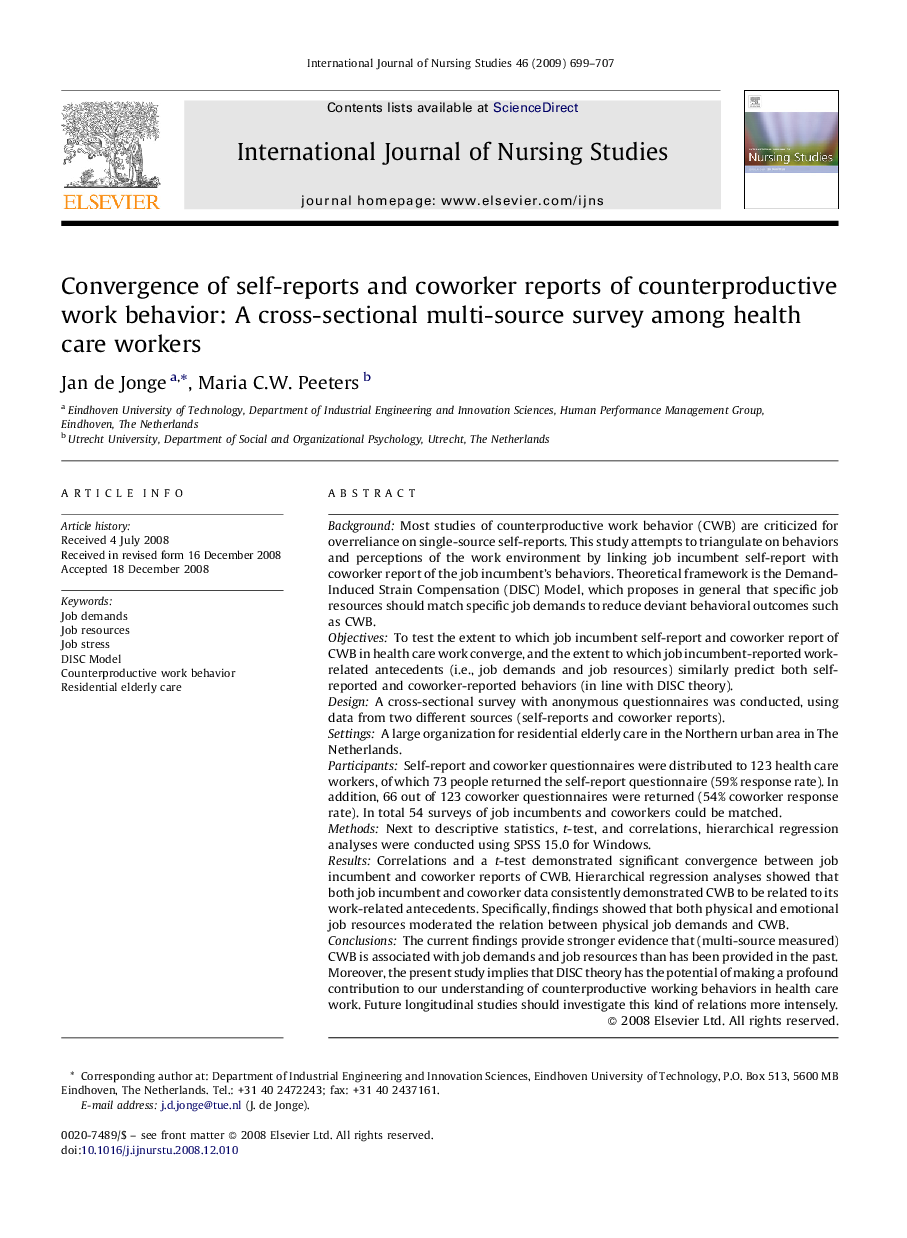| Article ID | Journal | Published Year | Pages | File Type |
|---|---|---|---|---|
| 1077183 | International Journal of Nursing Studies | 2009 | 9 Pages |
BackgroundMost studies of counterproductive work behavior (CWB) are criticized for overreliance on single-source self-reports. This study attempts to triangulate on behaviors and perceptions of the work environment by linking job incumbent self-report with coworker report of the job incumbent's behaviors. Theoretical framework is the Demand-Induced Strain Compensation (DISC) Model, which proposes in general that specific job resources should match specific job demands to reduce deviant behavioral outcomes such as CWB.ObjectivesTo test the extent to which job incumbent self-report and coworker report of CWB in health care work converge, and the extent to which job incumbent-reported work-related antecedents (i.e., job demands and job resources) similarly predict both self-reported and coworker-reported behaviors (in line with DISC theory).DesignA cross-sectional survey with anonymous questionnaires was conducted, using data from two different sources (self-reports and coworker reports).SettingsA large organization for residential elderly care in the Northern urban area in The Netherlands.ParticipantsSelf-report and coworker questionnaires were distributed to 123 health care workers, of which 73 people returned the self-report questionnaire (59% response rate). In addition, 66 out of 123 coworker questionnaires were returned (54% coworker response rate). In total 54 surveys of job incumbents and coworkers could be matched.MethodsNext to descriptive statistics, t-test, and correlations, hierarchical regression analyses were conducted using SPSS 15.0 for Windows.ResultsCorrelations and a t-test demonstrated significant convergence between job incumbent and coworker reports of CWB. Hierarchical regression analyses showed that both job incumbent and coworker data consistently demonstrated CWB to be related to its work-related antecedents. Specifically, findings showed that both physical and emotional job resources moderated the relation between physical job demands and CWB.ConclusionsThe current findings provide stronger evidence that (multi-source measured) CWB is associated with job demands and job resources than has been provided in the past. Moreover, the present study implies that DISC theory has the potential of making a profound contribution to our understanding of counterproductive working behaviors in health care work. Future longitudinal studies should investigate this kind of relations more intensely.
